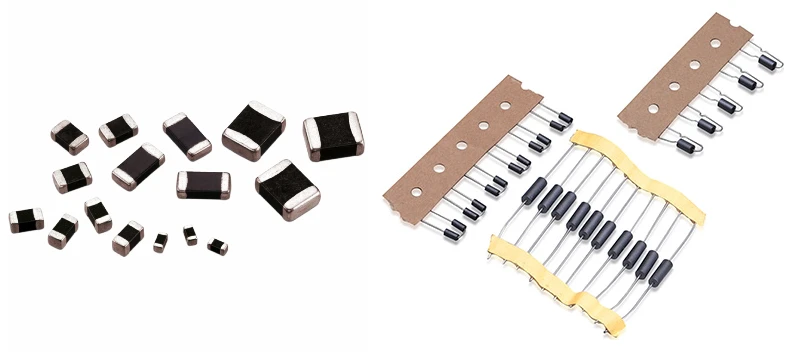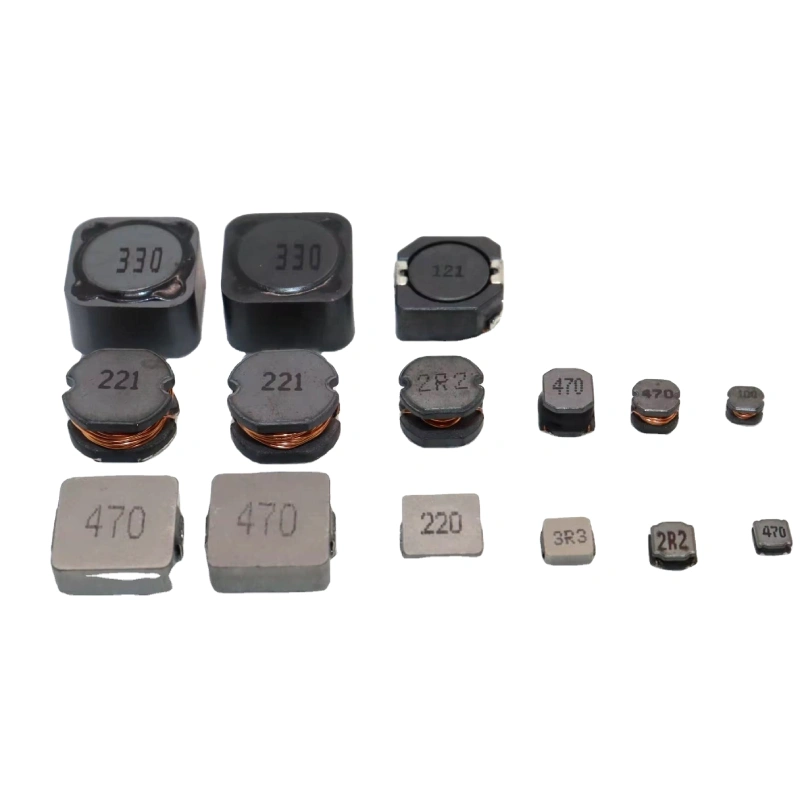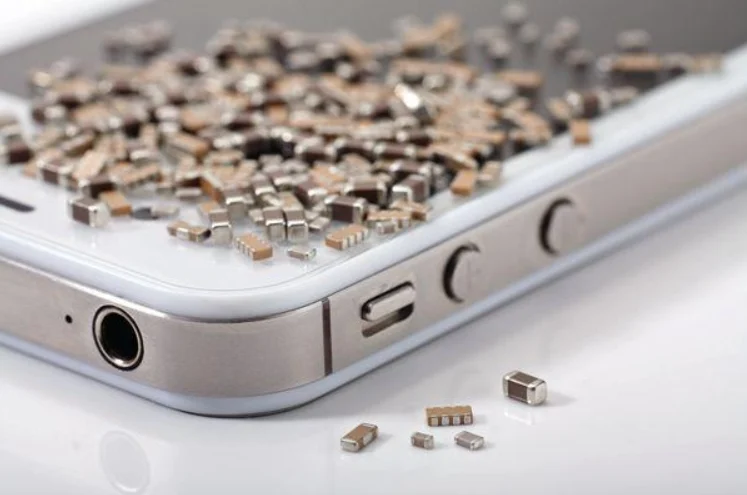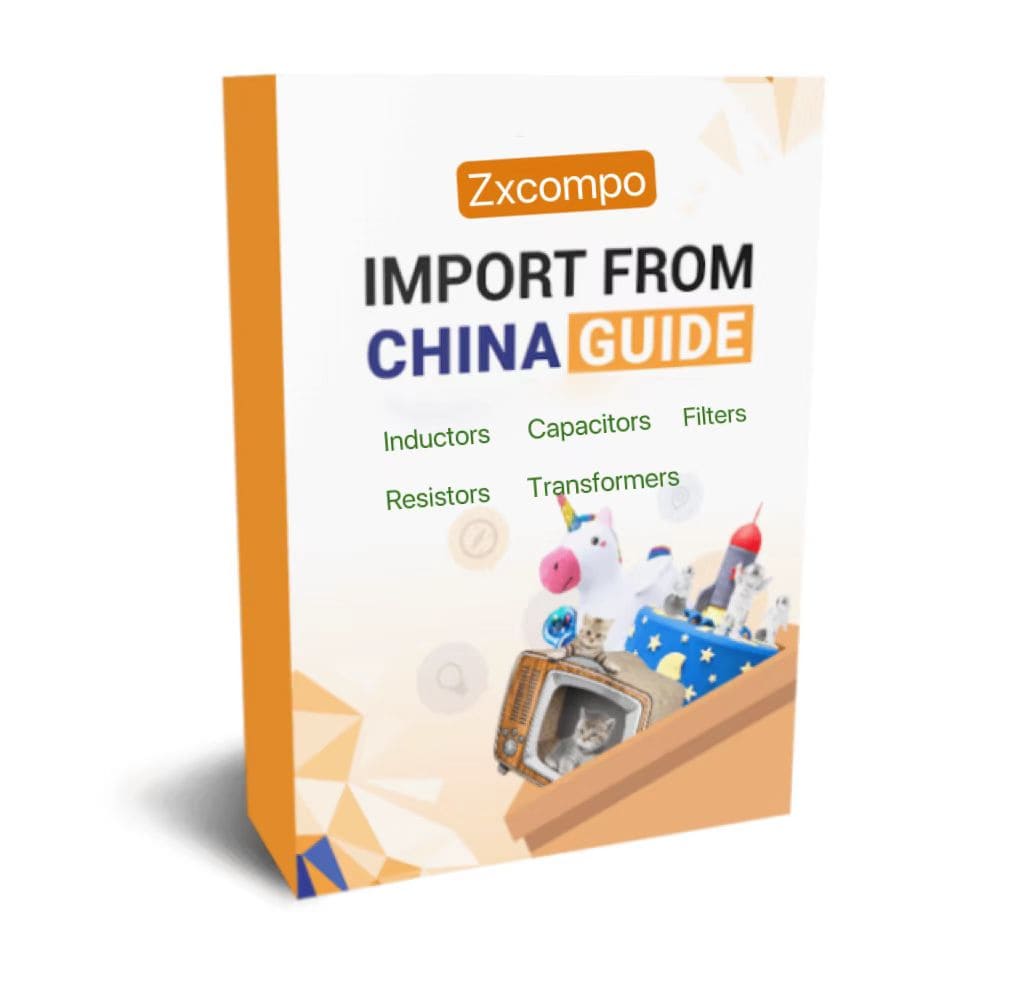Ferrite beads are made of ferrite, which has high magnetic permeability and high temperature resistance. It can generate inductive reactance within a certain frequency range, and the inductive reactance value changes with the frequency. At low frequencies, the inductive reactance value of ferrite beads is low, but as the frequency increases, the inductive reactance value will gradually increase. When the frequency reaches a certain value, the inductive reactance value of ferrite beads will suddenly decrease, which can absorb high-frequency noise very well.
1. The Model of Ferrite Beads Generally Consists of the Following Five Parts:
Part 1: Category, mostly represented by letters.
Part 2: Size, represented by numbers (English)
Part 3: Material, represented by letters, where X represents small.
Part 4: Impedance, impedance at 100MHz
Part 5: Packaging method, represented by letters.
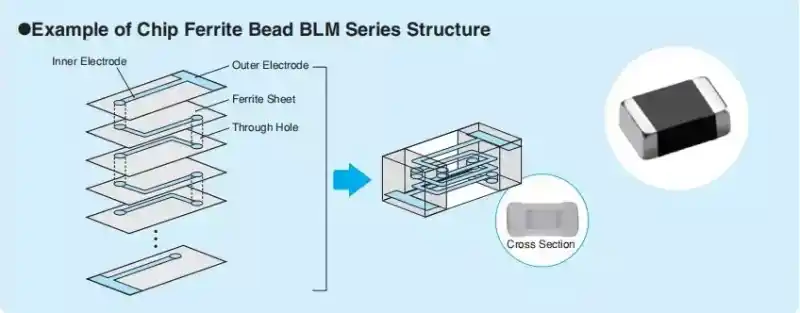
2. Structural Characteristics of Ferrite Beads:
Ferrite beads are an anti-interference component with a relatively fast application development. They are cheap, easy to use, and have a significant effect in filtering high-frequency noise. In a circuit, as long as there is a wire passing through it, when the current passes through the wire, the ferrite has almost no impedance to the low-frequency current, but it will have a greater attenuation effect on the current with a higher frequency. High-frequency current is dissipated in the form of heat. Its equivalent circuit is an inductor and a resistor in series. The resistance of the two components is proportional to the length of the magnetic bead.
Ferrite is a magnetic material. It will produce magnetic saturation due to excessive current passing through, and the magnetic permeability will drop sharply. For large current filtering, specially designed magnetic beads should be used in the structure, and attention should be paid to their heat dissipation measures. Ferrite beads can not only be used to filter high-frequency noise in power supply circuits (can be used for DC and AC output), but also have a wide range of applications in other circuits, and their size can be made very small. Especially in digital circuits, since the pulse signal contains high-frequency and high-order harmonics, and these harmonics are also the main source of high-frequency radiation in the circuit, the role of magnetic beads can be played in this occasion. Ferrite beads are also widely used in noise filtering of signal cables.
3. Units of Ferrite Beads:
The unit of ferrite beads is ohm, not Hunter unit, so you should pay special attention to this. Because the unit of the bead is nominal according to the impedance it produces at a certain frequency, and the unit of impedance is also ohm. The data sheet of ferrite beads generally provides a characteristic curve of frequency and impedance, which is generally based on 100MHz. For example, 600R@100MHz means that at a frequency of 100MHz, the impedance of the bead is equivalent to 600 ohms.
4. Classification and Selection of Ferrite Beads:
The main raw material of magnetic beads is ferrite. Ferrite materials are iron-magnesium alloy or iron-nickel alloy. Ferrite is a ferrimagnetic material with a cubic lattice structure. Its manufacturing process and mechanical properties are similar to those of ceramics, and its color is gray-black. The characteristics of this material are that the high-frequency loss is very large and it has a very high magnetic permeability. It can be the smallest capacitance generated between the coil windings of the inductor under high-frequency and high-resistance conditions.
Ferrite beads are mainly used for EMI differential mode noise suppression. Its DC impedance is very small, but it has a higher impedance at high frequencies. Generally speaking, 600R refers to the impedance value at a test frequency of 100MHZ.
Two aspects should be considered when selecting ferrite beads: one is the noise interference in the circuit, and the other is the current size that needs to pass through.
To roughly understand the frequency and intensity of the noise, the frequency impedance curves of different magnetic beads are different. You should choose the one with higher impedance at the center frequency of the noise. If the noise interference is large, you should choose a higher impedance, but the higher the impedance, the better, because the higher the impedance, the higher the DCR, and the greater the attenuation of the useful signal. However, there is generally no clear calculation and selection standard. It mainly depends on the actual use effect. 120R-600R is very commonly used.
(★ For more considerations in selecting ferrite beads, see this article: •SMD Ferrite Bead Selection Guide)
5. Ferrite Bead Packaging
Ferrite beads are generally packaged in two ways: surface-mount ferrite beads and plug-in ferrite beads.
6. Function of Ferrite Beads
The appearance of ferrite beads is similar to that of ferrite chip inductors. Its main function is to prevent power supply and signals from being interfered by noise.
In the low frequency band, the impedance is composed of the inductive reactance of the inductor. At low frequencies, R is very small, and the magnetic permeability of the magnetic core is very high, so the inductance is large, L plays a major role, and electromagnetic interference is reflected and suppressed. At this time, the loss of the magnetic core is very small, and the entire device is a low-loss, high-Q inductor. This inductor is prone to resonance. Therefore, in the low frequency band, sometimes after using ferrite beads, interference may be enhanced.
In the high frequency band, the impedance is composed of the resistance component. As the frequency increases, the magnetic permeability of the magnetic core decreases, resulting in a decrease in the inductance of the inductor and a decrease in the inductive reactance component. However, at this time, the loss of the magnetic core increases, the resistance component increases, and the total impedance increases. When high-frequency signals pass through ferrite, electromagnetic interference is absorbed and converted into heat energy and dissipated.
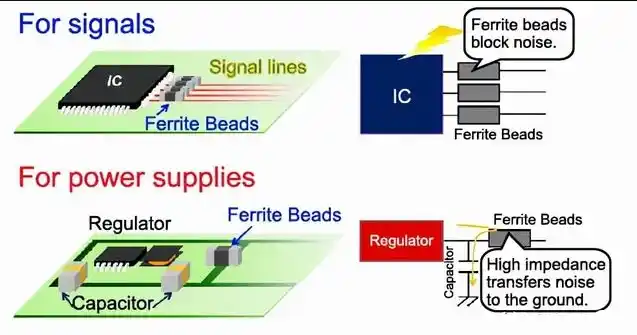
7. The Difference Between the Application of Ferrite Beads and Ferrite Chip Inductors
Ferrite beads are widely used on printed circuit boards. For example, placing magnetic beads (large magnetic rings) at the entrance of the power line of the printed circuit board can filter out high-frequency interference. Ferrite magnetic rings or magnetic beads are specially used to suppress high-frequency interference and spike interference on signal lines and power lines, and also have the ability to absorb electrostatic discharge pulse interference.
(★ For more information on the comparison of ferrite beads and ferrite chip inductors, see this article: •Ferrite Chip Inductor VS Ferrite Beads: All You Need To Know)
Inductors are energy storage components, and magnetic beads are energy conversion (consumption) devices. Inductors are mainly used in power supply filter circuits, mainly to suppress conducted interference; magnetic beads are mainly used in signal circuits, mainly to suppress electromagnetic interference. Magnetic beads are used to absorb ultra-high frequency signals, such as some radio frequency circuits, phase-locked loops, oscillator circuits, ultra-high frequency storage circuits (DDR, SDRAM, RAMBUS, etc.). These circuits require magnetic beads to be added to the input part of the power supply. Inductors are a type of energy storage. Energy-saving components are used in LC oscillation circuits, low-frequency filter circuits, etc., and their application frequency range rarely exceeds 50mhz.
8. Summary:
Ferrite beads are widely used in EMI control because they can attenuate high frequencies while allowing low frequencies to pass almost unhindered. Magnetic rings/beads used for EMI absorption can be made into various shapes and are widely used in various occasions.
For example, on PCB boards, they can be added to DC/DC modules, data lines, power lines, etc. to absorb high-frequency interference signals on the lines, but will not generate new poles in the system or destroy the stability of the system. When used in conjunction with power supply filters, they can supplement the high-frequency performance of the filter and improve the filtering characteristics of the system.
Ferrite beads have high resistivity and permeability, which is equivalent to the series connection of resistance and inductance, but the resistance and inductance values vary with frequency.
Therefore, they have better filtering effects than ordinary resistor filtering in the high-frequency band.

